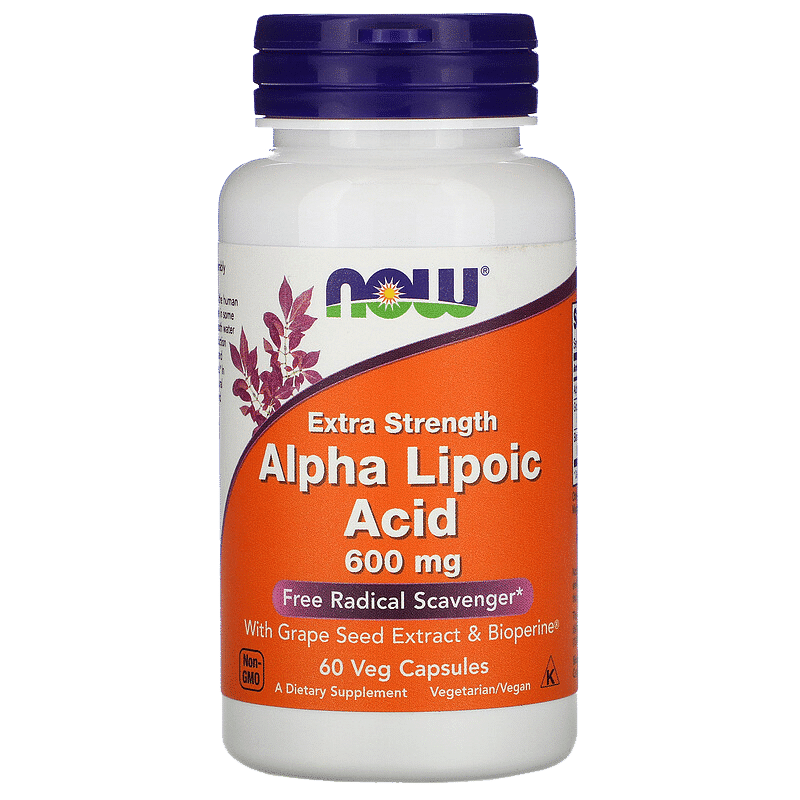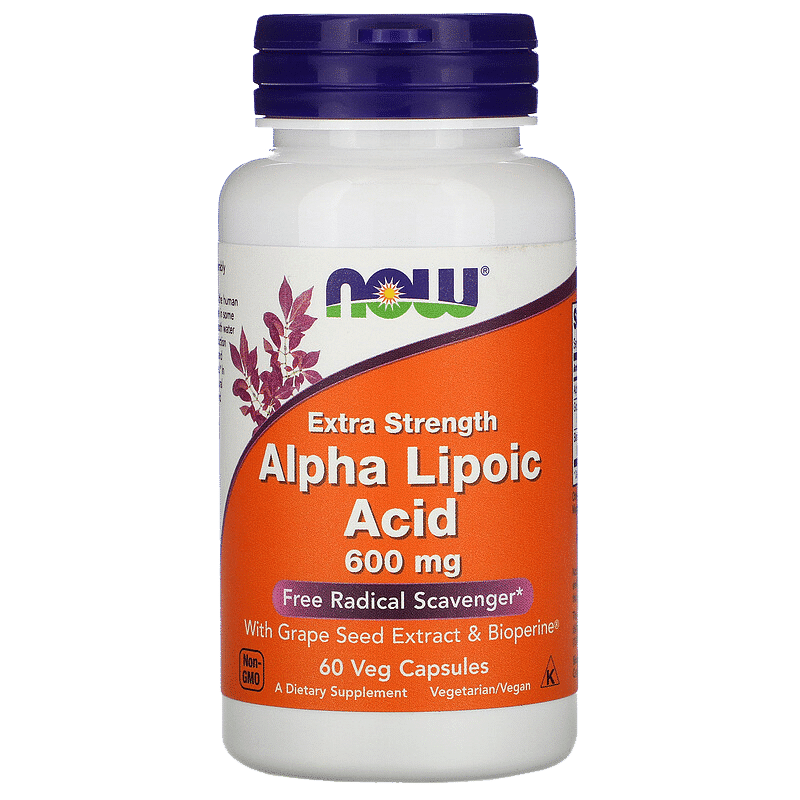Sold out
Sale
Alpha Lipoic Acid (600mg) - Agora Alimentos
€43,90 EUR
€52,20
Unit price
/
Unavailable
Alpha Lipoic Acid (600mg) - Agora Alimentos is backordered and will ship as soon as it is back in stock.
Description
Description
Now's Alpha Lipoic Acid 600mg is an effective antioxidant that fights free radicals.
Alpha Lipoic Acid (ALA) is one of the most effective antioxidants in fighting free radicals. It is the only nutrient that has demonstrated significant efficacy in reducing glucose levels. It causes an upward shift in the glucose-insulin dose-response curve. This is an important function that can improve nutrient uptake by muscle cells and protein circulation. One of the primary indications for Alpha Lipoic Acid is the treatment of neurological lesions, including diabetic neuropathy, a late complication of diabetes that causes pain and loss of sensation in the limbs. It increases blood flow to the nerves and improves the conduction of nerve impulses, making it suitable for treating neurological problems.
Alpha Lipoic Acid is a sulfur-containing compound found in very small amounts in food and the body. It acts as a powerful universal antioxidant due to its ability to combat free radicals in both lipid and aqueous environments, such as skin and muscles, as it is soluble in both water and fat. It allows the conversion of vitamins C and E from their oxidized forms to their active forms and facilitates the production of glutathione, one of the body's most important antioxidant and detoxifying components.
One of ALA's potential benefits is diabetes. Its antioxidant capacity protects pancreatic cells and can stimulate glucose uptake in muscles, improving insulin sensitivity, and helping to control blood glucose levels.
It also has the ability to inhibit the glycation process, which consists of the reaction established between proteins and excess glucose (this process causes damage to tissues, with collagen being one of the proteins most susceptible to this, leading to aging).
Furthermore, ALA inhibits the conversion of glucose and galactose into sorbitol, the accumulation of which is responsible for some of the pathologies observed in diabetic patients, such as cataracts.
The effectiveness of alpha lipoic acid has been proven in several studies with type 2 diabetics, presenting good results not only in terms of blood glucose, but also in protecting against renal vascular damage, reducing the symptoms of diabetic neuropathy and improving nerve function.
Now's Alpha Lipoic Acid 600mg is an effective antioxidant that fights free radicals.
Alpha Lipoic Acid (ALA) is one of the most effective antioxidants in fighting free radicals. It is the only nutrient that has demonstrated significant efficacy in reducing glucose levels. It causes an upward shift in the glucose-insulin dose-response curve. This is an important function that can improve nutrient uptake by muscle cells and protein circulation. One of the primary indications for Alpha Lipoic Acid is the treatment of neurological lesions, including diabetic neuropathy, a late complication of diabetes that causes pain and loss of sensation in the limbs. It increases blood flow to the nerves and improves the conduction of nerve impulses, making it suitable for treating neurological problems.
Alpha Lipoic Acid is a sulfur-containing compound found in very small amounts in food and the body. It acts as a powerful universal antioxidant due to its ability to combat free radicals in both lipid and aqueous environments, such as skin and muscles, as it is soluble in both water and fat. It allows the conversion of vitamins C and E from their oxidized forms to their active forms and facilitates the production of glutathione, one of the body's most important antioxidant and detoxifying components.
One of ALA's potential benefits is diabetes. Its antioxidant capacity protects pancreatic cells and can stimulate glucose uptake in muscles, improving insulin sensitivity, and helping to control blood glucose levels.
It also has the ability to inhibit the glycation process, which consists of the reaction established between proteins and excess glucose (this process causes damage to tissues, with collagen being one of the proteins most susceptible to this, leading to aging).
Furthermore, ALA inhibits the conversion of glucose and galactose into sorbitol, the accumulation of which is responsible for some of the pathologies observed in diabetic patients, such as cataracts.
The effectiveness of alpha lipoic acid has been proven in several studies with type 2 diabetics, presenting good results not only in terms of blood glucose, but also in protecting against renal vascular damage, reducing the symptoms of diabetic neuropathy and improving nerve function.
60 vegetable capsules



